Headquarters

John Clippinger
Co-Director

John Henry Clippinger is currently the Co-Director of the Law Lab. Previously, Dr. Clippinger directed Social Physics project at the Berkman Center that supported the development of an open source, interoperability identity framework called Higgins to give people control over their personal information. Dr. Clippinger also directed multi-disciplinary research and workshops to explore the impact of trust,reciprocity, reputation, social signaling on the formation of digital institutions. He is the author of A Crowd of One: The Future of Individual Identity (Perseus, Public Affairs, 2007).
He is founder and a board member of Azigo Inc. (formerly Parity Communications) and consults with Equifax, The Rendon Group, and other companies, foundations, and government agencies on technology, policy and business strategy.
John was CEO of Context Media LLC, a knowledge management software and services company and Director, Intellectual Capital, at Coopers & Lybrand (now Price Waterhouse Coopers). Prior to joining Coopers & Lybrand, he was founder and CEO of Brattle Research Corporation, which developed artificial intelligence, language processing and search software. He is author/editor of the book, The Biology of Business: Decoding the Natural Laws of Enterprise (Jossey-Bass, 1999) and the author of Meaning and Discourse: A Computational Model of Psychoanalytic Discourse(Johns Hopkins, 1977).
Dr. Clippinger is a graduate of Yale University and holds a Ph.D. from the University of Pennsylvania. He is a frequent participant at The Highlands Forum, The Aspen Institute, the CEO Leadership Institute of Yale School of Management, Creative Leadership Summit, Aspen Institute Italy, Fortune Brainstorm, Arab Thought Leadership Conference, World Economic Forum, Supernova, Diamond Exchange, TII/Vanguard, and The Santa Fe Institute Business Network.

Oliver Goodenough
Co-Director
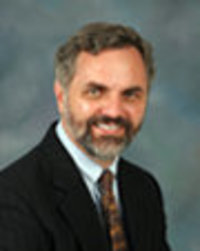
Oliver R. Goodenough is currently a fellow at The Berkman Center for Internet and Society at
Professor Goodenough has done extensive work in the combination of biology, evolutionary theory and law, focusing on three main topics: (i) the neurological basis of law and the sense of justice, (ii) evolutionary theory, particularly as applied to cultural evolution, and (iii) the application of game theory, cognitive neuroscience and evolutionary thought to problems of law, business and economics. In addition to his own work, Professor Goodenough has been an organizer of more than 25 academic conferences, in cooperation with institutions including the
On neuroscience and law, Professor Goodenough was co-editor of Law and the Brain, a dedicated issue of the Philosophical Transactions of the Royal Society B: Biological Sciences, (Nov. 2004), which included his papers Law and the brain: Introduction (with S. Zeki, Vol. 359, P. 1661-1665), A neuroscientific approach to normative judgment in law and justice (with K. Prehn, Vol. 359 P. 1709-1726), and Responsibility and punishment: whose mind? A response (Vol. 349, P. 1805-1809). A reprinting of this volume by Oxford University Press was published in 2006.
His essay Mapping Cortical Areas Associated with Legal Reasoning and Moral Intuition, 41 Jurimetrics J. Vol. 41, P. 429–442 (2001), was awarded the Lee Loevinger Jurimetrics Research Award, in April, 2000, and was among the first publications linking law and neuroscience. More recently, his chapter Can Cognitive Neuroscience Make Psychology a Foundational Discipline for the Study of Law? appeared in Michael Freeman, ed., Law and Psychology, Current Legal Issues Vol. 9 (
Goodenough has also been involved in brain research projects. A pilot fMRI study was conducted at the
His publications on cultural evolution include The 'St Jude' mind virus, with Richard Dawkins, Nature, Vol. 371, No. 6492, P. 23, (September 1, 1994), Mind Viruses: Culture, Evolution and the Puzzle of Altruism, Social Science Information, Vol. 34, No. 2, P. 287 (1995), Information Replication in Culture: Three Modes for the Transmission of Culture Elements through Observed Action, in Imitation in Animals and Artifacts (MIT Press, 2002) and Cultural Replication Theory and Law: Proximate Mechanisms Make a Difference, 30 Vermont L. Rev. 989-1005, 2006.
Professor Goodenough has given presentations on business, economics and biology to the American Law and Economics Association, the Society for Evolutionary Analysis in Law, and the International Society for the New Institutional Economics. His work on mechanisms stabilizing cooperative behavior in business is developed in his chapter Law and the Biology of Commitment, in Randolph Nesse, ed., Evolution and the Capacity for Commitment (Russel Sage, 2002). This work on the structures and psychology of economic cooperation was carried forward in a program of the Gruter Institute entitled Free Enterprise: Values in Action, with the support of the John Templeton Foundation, and has resulted in Values, Mechanism Design, and Fairness (Publication anticipated in Moral Markets: The Critical Role of Values in the Economy, Paul J. Zak, ed., Princeton University Press, forthcoming, 2007, also available at http://papers.ssrn.com/sol3/papers.cfm?abstract_id=933012.)
In his other fields of concentration, entertainment law, intellectual property, corporate law and international business and trade, his writings include This Business of Television (3nd ed. Billboard, 2006), and Privacy and Publicity: Society, Doctrine and the Development of Law (Intellectual Property Institute, 1996). His chapter Why Do Good People Steal Intellectual Property?, with Gregory Decker is available in working paper form at http://www.bepress.com/giwp/default/vol4/iss1/art3/current_article.html. Publication is anticipated in Law, Mind and Brain, Michael Freeman and Oliver R. Goodenough, eds.
Professor Goodenough is a regular contributor of opinion and commentary pieces to the Rutland Herald,
In addition to writing, Professor Goodenough has been extremely active as an organizer and presenter for academic conferences. In the 16 years since he became an academic, he has been a principal organizer of more than 40 workshops, seminars, colloquia and other conferences, working with such partners and hosts as Harvard University, University of Cambridge, University of California at Berkeley, UCLA, Georgetown University, University College London, Dartmouth College, Humboldt University, the Human Behavior and Evolution Society, the Center for Advanced Study in the Behavioral Sciences, and the American Anthropological Association. He has made formal presentations at over 100 academic and professional conferences, including venues in
As a teacher, Professor Goodenough’s offerings at
Professor Goodenough has been in legal practice for over 25 years, first as an associate at Cleary, Gottlieb, Steen & Hamilton in New York City then, from 1981-2003, with the New York firm of Kay & Boose, L.L.P. and its predecessors Kay Collyer & Boose and Fulop & Hardee, first as an associate, then as a partner, and, after turning to academia full time, as counsel. Most recently he has acted as a consultant to law firms and legal departments in

Yochai Benkler
Principle Investigator

Yochai Benkler is the Berkman Professor of Entrepreneurial Legal Studies at Harvard, and faculty co-director of the Berkman Center for Internet and Society. Before joining the faculty at Harvard Law School, he was Joseph M. Field '55 Professor of Law at Yale. He writes about the Internet and the emergence of networked economy and society, as well as the organization of infrastructure, such as wireless communications.
In the 1990s he played a role in characterizing the centrality of information commons to innovation, information production, and freedom in both its autonomy and democracy senses. In the 2000s, he worked more on the sources and economic and political significance of radically decentralized individual action and collaboration in the production of information, knowledge and culture.
His work traverses a wide range of disciplines and sectors, and is taught in sundry professional schools and academic departments. In real world applications, his work has been widely discussed in both the business sector and civil society.
His books include The Wealth of Networks: How social production transforms markets and freedom (2006), which received the Don K. Price award from the American Political Science Association for best book on science, technology, and politics, the Donald McGannon award for best book on social and ethical relevance in communications policy research, was named best business book about the future by Stategy & Business, and otherwise enjoyed the gentle breath of Fortuna. His articles include "Overcoming Agoraphobia" (1997/98, initiating the debate over spectrum commons); "Commons as Neglected Factor of Information Production" (1998) and "Free as the Air to Common Use" (1998, characterizing the role of the commons in information production and its relation to freedom); "From Consumers to Users" (2000, characterizing the need to preserve commons as a core policy goal, across all layers of the information environment); "Coase's Penguin, or Linux and the Nature of the Firm" (characterizing peer production as a basic phenomenon of the networked economy); and "Sharing Nicely" (2002, characterizing shareable goods and explaining sharing of material resources online). His work can be freely accessed at benkler.org. Benkler received the Electronic Frontier Foundation's Pioneer Award in 2007, and the Public Knowledge IP3 Award in 2006.

Urs Gasser
Principal Investigator

Dr. Urs Gasser is the Berkman Center for Internet & Society's Executive Director. Before joining the Berkman Center in this capacity, he was Associate Professor of Law at the University of St. Gallen (Switzerland), where he led the Research Center for Information Law as Faculty Director. Before joining the St. Gallen faculty, Urs Gasser spent three years as a research and teaching fellow at the Berkman Center for Internet & Society at Harvard Law School, where he was appointed Faculty Fellow in 2005. At the Berkman Center, he was the lead fellow on the Digital Media Project, a multi-disciplinary research project aimed at exploring the transition from offline/analog to online/digital media. He also initiated and chaired the Harvard-Yale-Cyberscholar Working Group, and was a visiting researcher at Harvard Law School in the 2003/04 academic year.
Urs Gasser's research and teaching focuses on information law and policy and the interaction between law and innovation. Current research projects – several of them in collaboration with leading research institutions in the U.S., Europe, and Asia – explore policy and educational challenges for the future generation of digital natives, the regulation of digital media and technology (with emphasis on IP law), ICT interoperability, the institutional settings for fostering entrepreneurship, and the law’s impact on innovation and risk in the ICT space.
Urs Gasser is a graduate of the University of St. Gallen (S.J.D. 2001, J.D. 1997) and Harvard Law School (LL.M. 2003). For his academic work, he has received several awards, including Harvard’s Landon H. Gammon Fellowship for academic excellence and the “Walther Hug-Preis Schweiz”, a prize for the best doctoral theses in law nationwide, among others.
He has published and edited, respectively, six books and has written over 60 articles in books, law reviews, and professional journals. Publications within the last two years have included a study on ICT interoperability and eInnovation, an article on search engine regulation and an extensive comparative legal study on anti-circumvention legislation. He is the co-author (with John Palfrey) of Born Digital: Understanding the First Generation of Digital Natives (Basic Books, New York 2008), which is being translated into ten languages, including Chinese and Russian. The German translation is available under the title Generation Internet (Hanser Verlag, Munich 2008).
Dr. Gasser frequently acts as a commentator on comparative law issues for the US and European media. He is also an advisor to international technology companies on information law matters.
Staff

Caroline Nolan
Project Manager
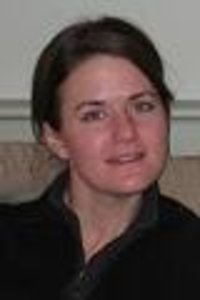
Caroline Nolan is a Project Manager at the Berkman Center who has worked on a variety of initiatives and events since she joined the Center in May 2007. She currently contributes to Berkman's Law Lab project, Cloud Computing series, work on the Global Network Initiative, in addition to other efforts.
Caroline has a Master's degree in International Affairs from the Fletcher School of Law & Diplomacy at Tufts University, and a Bachelor's degree from Brown University. While attending Fletcher, Caroline worked as a researcher for Reebok's human rights department and the Boston Consortium on Gender, Security and Human Rights. During her first career, she was a sous chef at Rialto restaurant in Cambridge.

Dan Collis-Puro
Senior Web Developer

Dan Collis-Puro has a long history helping non-profits via technology, specifically with user-managed database-backed web applications. He seems to fall into the role of a technical jack-of-all-trades everywhere he works, but he's happiest developing for the web or bending *nix machines to his will.
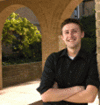
Dan Jones
Digital Media Producer
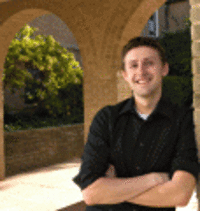
Dan joined the Berkman Center in September of 2008 as Digital Media Producer after completing his MFA in Film and Digital Media at American University in Washington, DC. He co-hosts and produces the weekly Berkman Center podcast, Radio Berkman.
He obtained his BA in Environmental Studies at Hunter College in New York City, after which he produced a narrative feature, a documentary, and several shorts and commercial pieces with his company, Blanket Statement Productions. He also was an assistant instructor in film and video at Education for the Arts in Kalamazoo, Michigan.
In his previous life Dan made a hobby of jobs and internships, working at various times for a library, a Republican Senator, a Democratic New York City Councilwoman, for PBS, the United Nations, WBAI-FM, for a consumer advocacy group, and for a professional walker (no kidding). Dan enjoys talking about film, digital media, collaborative filtering, public radio, and podcasting, and in his free time likes to travel, cook, and eat.

Seth Young
Communications

Seth manages the Berkman Center's communications efforts and helps to orchestrate the work of the digital media producer, community coordinator, and program coordinator.
Previously, Seth supported John Palfrey. He also pitched in on the OpenNet Initiative, the Cyberlaw Clinic, and many other activities across the Center.
In and among his various pre-Berkman lives, Seth earned a BA from Reed, taught literature at Queens, toiled at RealNetworks, and assisted Harvard Law Professor Hal Scott.
Seth characterizes himself as an itinerant intellectual dilettante.
Administration

Carey Andersen
Staff Assistant

Carey Capone Andersen is the Staff Assistant at the Berkman Center for Internet & Society. Carey began at the Center in August 2007. Her responsibilities include being the first point of contact for this dynamic, exciting and fast-paced research center. Carey serves as office manager for the Center, organizing facility issues, arranging travel, maintaining calendars and supporting fellows, staff and the events/communication team.
Carey is a 1996 cum laude graduate from Providence College. She lives in Inman Square with her husband Eric and son Liam.

Karyn Glemaud
Financial/Administrative Associate

Karyn joined the Berkman staff in October 2009. As Financial / Administrative Associate, Karyn reconciles most of Berkman’s accounting and assists with arranging travel for Berkman members and guests. Administratively, she acts as back up to the amazing Berkman Staff Assistant, processes Berkman Temp information and directly supports the Law Lab project, which consists of budget management and event planning.
Karyn is a proud mother of her son, Mali, and is a full-time student at Cambridge College, where she is earning a Bachelor’s in Human Services. She enjoys music, arts, traveling and writing in her spare time. She currently resides in Belmont with her son and mother and loves hanging out in Cambridge.
Fellows

Aaron Shaw

Aaron is a Ph.D. candidate in the Sociology Department at UC Berkeley. His research focuses on political and economic dimensions of collective action online. Aaron's current projects address the effects of power inequalities in information sharing communities; the relationship between online participation and political engagement; the effects of online participation among venture-funded Internet startups; and the motivations of contributors to commercial crowdsourcing markets and non-commercial peer production projects.

Dave Rand
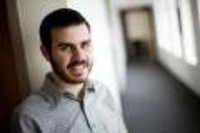
David G. Rand is a Fellow at the Berkman Center for Internet & Society, as well as a Post-Doctoral Fellow in Mathematical Biology at Harvard's Program for Evolutionary Dynamics. David studies human cooperation from an evolutionary game theoretic perspective. His research integrates theoretical and empirical approaches, conducting behavioral experiments inspired by evolutionary models, and developing models based on experimental data.
After earning a B.A. in Computer Biology from Cornell University summa cum laude in 2004, David worked as a mathematical modeler at the biotechnology start-up company Gene Network Sciences, and then received a Ph.D. from Harvard Medical School's Department of Systems Biology in 2009. Thus he brings a biological perspective and toolkit to the study of human behavior.
David works extensively with Berkman Co-director Yochai Benkler. Their work has thus far focused on solving collective action problems, and the role that solidarity and group identity play in promoting cooperation. For more, see a recent publication in PNAS studying in-group bias among Democrats during the 2008 election. David also studies reward and punishment in cooperative settings, and the dangers associated with escalation as opposed to reciprocation.
Together with Yochai, David runs the Berkman Center Cooperation Group's weekly seminar, Mondays from 4pm-6pm @ 23 Everett St. These weekly meetings explore cooperation from many different angles, and include participants from law, economics, computer science, psychology, sociology, and evolutionary biology.z
Research Associates

Brock Rutter
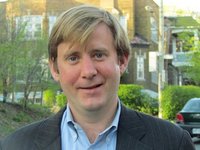
Brock Rutter has been involved in Law Lab research since 2008 and has contributed to the Vermont Digital LLC project, as well as research in effects of technology on the practice of law. He also helped develop and teach a course on lawyer use of technology that has been taught twice at Vermont Law School. He programs A2J and HotDocs interviews and software for pro-se assistance in the state of Vermont.

Joey Mornin
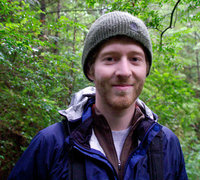
Joseph Mornin is a Boston-based activist and technologist. His work focuses on the role of technology in governance, politics, and civic participation. He has worked on a range of digital activism projects, including Change Congress, the Pickens Plan alternative energy campaign, online voter registration initiatives, and numerous political campaigns.
He holds a B.A. in English from Reed College. He is currently a researcher at the Berkman Center and online director at Fix Congress First.
